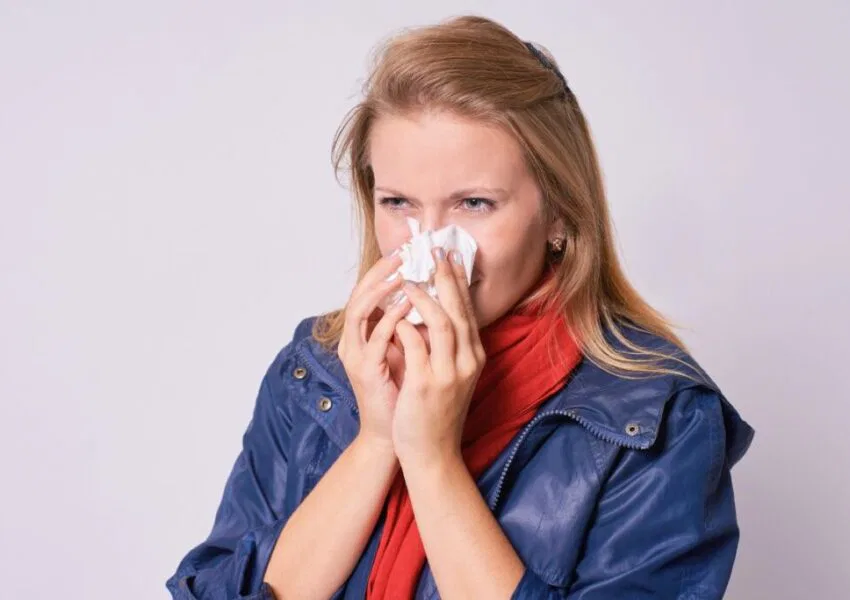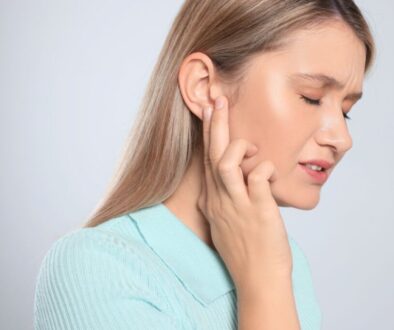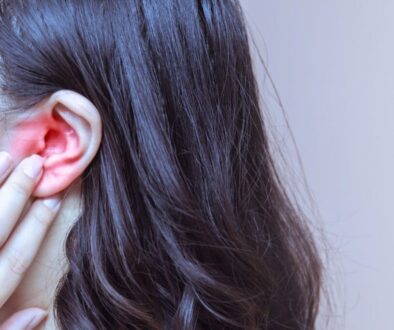How To Stop Post Nasal Drip Nausea

Published July 31, 2025
Struggling with post nasal drip nausea that’s making your day unbearable? The constant buildup of mucus in your throat, paired with the lingering nausea, can throw your routine completely off track. It’s not just uncomfortable—it’s disruptive. But the good news? There are proven ways to tackle this frustrating condition and finally find the relief you need.
In this article, we’ll explore the causes of post nasal drip, highlighting the connection to nausea. We’ll also learn about the common symptoms and effective remedies for relief.
What Is Post Nasal Drip And Why Does It Cause Nausea?
Post nasal drip occurs when your sinuses produce an excess of mucus, which then drains into your throat. Mucus is a natural part of the body’s defense system. However, too much mucus can irritate the throat. This can cause symptoms like coughing or the need to clear your throat often.
Can Post Nasal Drip Cause Nausea?
When too much mucus collects and drains into the stomach, it can irritate the stomach lining, often causing nausea. This is especially challenging for individuals with gastroesophageal reflux disease (GERD). Mucus drainage and acid reflux together can make queasiness worse.
Additionally, excess mucus can irritate the throat, triggering the gag reflex. This can increase nausea and, in severe cases, cause vomiting.
Common Causes Of Post Nasal Drip
Post nasal drip often stems from a variety of underlying conditions, including:
- Sinusitis: Infections in the sinuses that trigger excess mucus production
- Allergies: Seasonal allergies, including hay fever, are frequent culprits
- Colds and flu: Viral infections that irritate the nasal passages
- GERD: Acid reflux can worsen mucus buildup and drainage
- Environmental irritants: Exposure to smoke, strong odors, or pollutants can aggravate symptoms
Knowing these causes can help you pick the most effective remedies and manage symptoms better.

Effective Remedies For Managing Post Nasal Drip Nausea
Discover proven, evidence-based solutions to help relieve nausea from post nasal drip.
Over-The-Counter And Prescription Medications
- Antihistamines: Antihistamines like loratadine (Claritin) and cetirizine (Zyrtec) can reduce mucus. They’re effective against allergy symptoms. Opt for non-drowsy formulas to avoid thickening the mucus, ensuring more effective relief.
- Decongestants: Decongestants such as pseudoephedrine (Sudafed) minimize nasal swelling, promoting better mucus drainage. Nasal sprays with oxymetazoline provide fast relief. Use them short-term only to avoid rebound congestion.
- Expectorants: Expectorants, like guaifenesin (Mucinex), work by thinning mucus, making it easier to expel from your system.
- Nasal Corticosteroids: Steroid nasal sprays like fluticasone (Flonase) reduce inflammation in your nasal passages. They help lower mucus production and improve comfort.
- GERD Medications: Post nasal drip and nausea may be linked to GERD. Treatments like proton pump inhibitors or antacids can help. They address the root cause and offer relief.
Natural Remedies
- Ginger for Nausea Relief: Renowned for its potent anti-nausea benefits, ginger is a natural remedy to soothe an unsettled stomach. Enjoy a cup of warm ginger tea or chew on fresh ginger slices for fast, effective relief.
- Peppermint Aromatherapy: The refreshing, cooling properties of peppermint oil can help alleviate nausea. Simply inhale its calming scent using a diffuser or add a few drops to a bowl of warm water for instant comfort.
- Uplifting Lemon Aroma: The zesty scent of fresh lemons can ease queasiness. It also helps reduce mucus buildup.
- Steam Therapy for Congestion: Relieve congestion with steam therapy. A steamy shower or inhaling steam from hot water can help loosen thick mucus, making it easier to breathe and clear your airways.
- Saltwater Gargle for Throat Relief: A warm saltwater gargle is a simple yet effective way to soothe an irritated throat, clear out mucus, and reduce discomfort.
Dietary And Lifestyle Adjustments
- Stay Hydrated: Keep your body hydrated by drinking plenty of fluids, prioritizing warm options like tea or soup. These not only help thin mucus but also keep your nasal passages moist and comfortable.
- Avoid Irritants: Avoid irritants such as strong perfumes and cigarette smoke. Stay away from airborne triggers that worsen symptoms.
- Elevate Your Sleep: Sleep with your head elevated to reduce mucus buildup and ease discomfort, especially if GERD is a contributing factor.
- Stick to Gentle Foods: Choose a bland, gentle diet by avoiding spicy, greasy, or acidic foods, which can worsen GERD symptoms and nausea.
Long-Term Management
- Manage Allergies Effectively: Take allergy medications regularly. Use dust-proof covers and add a HEPA filter to your home to reduce allergens.
- Prioritize Nasal Hygiene: Clear away excess mucus and allergens with saline sprays or a neti pot to keep your nasal passages clean and healthy.
- Boost Your Immune System: Eat a balanced, nutrient-rich diet. Consider supplements like vitamin C or probiotics. They can help reduce colds and sinus infections.
- Identify Root Causes: Consult your doctor to figure out the underlying cause. It could be due to structural issues or chronic conditions like GERD.
- Create a Humidified Environment: Use a humidifier to add moisture to the air, relieving dryness and irritation in your nose and throat.
- Oral Probiotics: Targeted probiotics like Bionaze, containing BLIS K12™ and BL-04™, support ENT health by balancing the nasal and oral microbiome. They boost immunity, reduce harmful bacteria, and help prevent sinus issues, post-nasal drip, and nausea.
Frequently Asked Questions
Does post nasal drip always cause nausea?
Not necessarily. Some people are more sensitive to mucus drainage. They may feel nauseous. Others might only experience mild discomfort.
How long does nausea from post nasal drip last?
The duration can vary. Mild cases often resolve within a few days, while chronic cases may require ongoing management and treatment.
What’s the quickest way to ease nausea from post nasal drip?
For quick relief, sip ginger tea. Inhale the refreshing scent of peppermint. You can also use an over-the-counter expectorant to clear mucus.
Can treating allergies help reduce nausea from post nasal drip?
Yes, absolutely. Allergy medications, like antihistamines, help prevent allergic reactions. They can reduce mucus production and relieve nausea caused by post nasal drip.
Why Choose Bionaze
Bionaze is an advanced probiotic supplement designed to promote optimal ear, nose, and throat (ENT) health. Powered by clinically proven strains like BLIS K12™ (Streptococcus salivarius K12) and BL-04™ (Bifidobacterium Lactis BL-04), it helps balance the oral and nasal microbiome. It targets harmful bacteria that cause sinus infections, post-nasal drip, and nausea.
Safe, effective, and easy to use, Bionaze offers a natural, long-term solution for enhanced immune support and lasting relief.

Don’t Let Post Nasal Drip Nausea Hold You Back
Managing post nasal drip nausea can be tough. However, it’s manageable with the proper medications, natural remedies, and lifestyle changes. If your symptoms continue or worsen, seek guidance from a healthcare professional. By taking these steps, you can regain control and find much-needed relief.
You don’t have to let post-nasal drip nausea control your life. Whether you need quick relief or long-term support, the right treatments can make all the difference. Boost your body’s defenses and support ENT health with Bionaze.
Benefit From The Latest Advancements In Probiotic Science With Bionaze
Bionaze is a proprietary blend of probiotics proven to promote ear, nose, and throat health, improve digestion, and support your immune system. The active ingredients BLIS K12, and BL-04 are considered among the best probiotics according to science.
Get 25% Off Your First Order when you use BIO25 at checkout!

This Content Has Been Reviewed For Factual Accuracy
This content has undergone thorough fact-checking by our team of internal experts. Learn more about the meticulous editorial standard for our website here.
ADVERTISEMENT

About The Author
Hi, I’m Corinne Grace, a proud nursing graduate from Riverside College with a flair for writing. I specialize in health and wellness topics, using my educational background to weave informative and attention-grabbing articles that appeal to a wide variety of readers.




